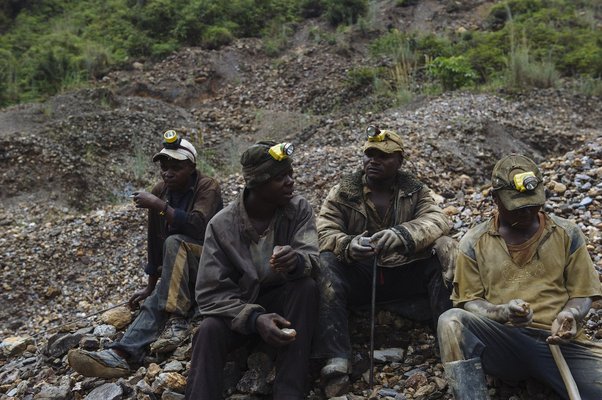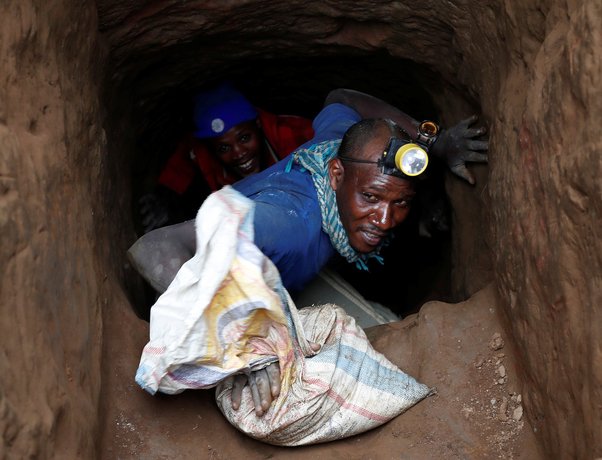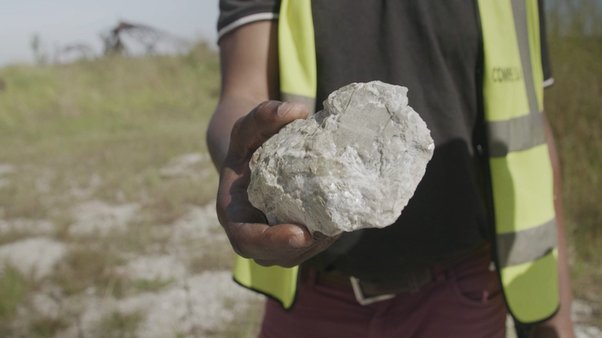Last week, Global Witness and our partners attended the OECD Forum on Responsible Mineral Supply Chains. One topic that dominated the agenda was the question of "value addition" in mineral supply chains.
What is value addition?
At the OECD forum, industry and government panellists largely framed value addition in terms of financial gains, viewing increased payments and revenue sharing as the primary means of adding value to mineral-rich regions.
This viewpoint, while not entirely misguided, is overly simplistic and fails to capture the broader spectrum of what true value addition means for countries and local communities.
The panels run by civil society, Indigenous peoples and communities affected by mining painted a starkly different picture. Their concept of value addition extended far beyond financial compensation.
These groups highlighted several critical aspects that must be included in any discussion about adding value through responsible mineral supply chains.
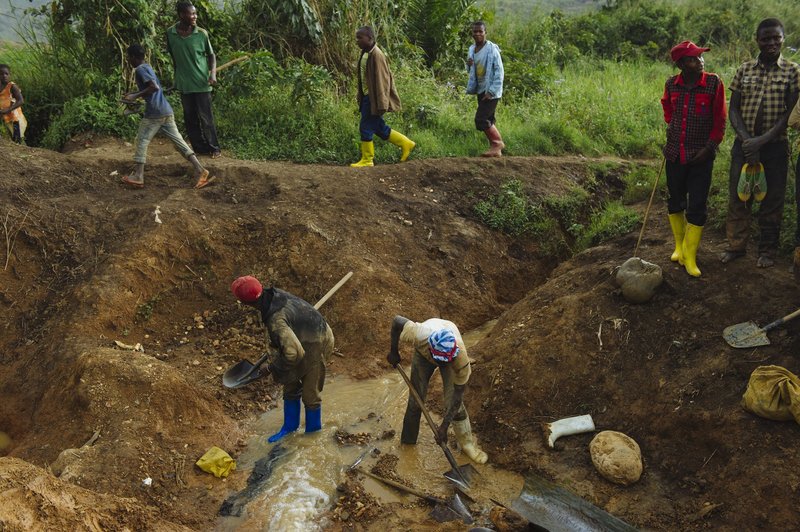
Artisanal miners pan for gold at the Mufa II gold mining site in South Kivu in the east of the Democratic Republic of the Congo on April 11 2015. Phil Moore / Global Witness
Diversification of the economy beyond mining
For many communities, relying solely on mining as a source of income is not sustainable in the long term. Emmanuel Umpula Nkumba from Afrewatch Democratic Republic of Congo (DRC) was keen to emphasise the need for economic diversification.
“There is a greater need for investments in different sectors such as agriculture, education and small-scale enterprises,” he told the forum. “By creating a multifaceted economy, communities can become more resilient and less dependent on the mining industry and its changeable fortunes.”
Investments and partnerships that deliver holistically
True value addition requires investments and partnerships that consider the holistic development of communities.
For Mutuso Dhliwayo of Zela in Zimbabwe, this means “prioritising not just financial investments but also social and infrastructural investments.
“For instance, building schools, hospitals and roads can significantly enhance the quality of life and provide long-term benefits to local populations, as well as ultimately to companies who can rely on a healthy and well-trained workforce.
“Holistic partnerships should involve stakeholders at all levels, ensuring that community voices are heard and their needs addressed comprehensively.”
By creating a multifaceted economy, communities can become more resilient and less dependent on the mining industry
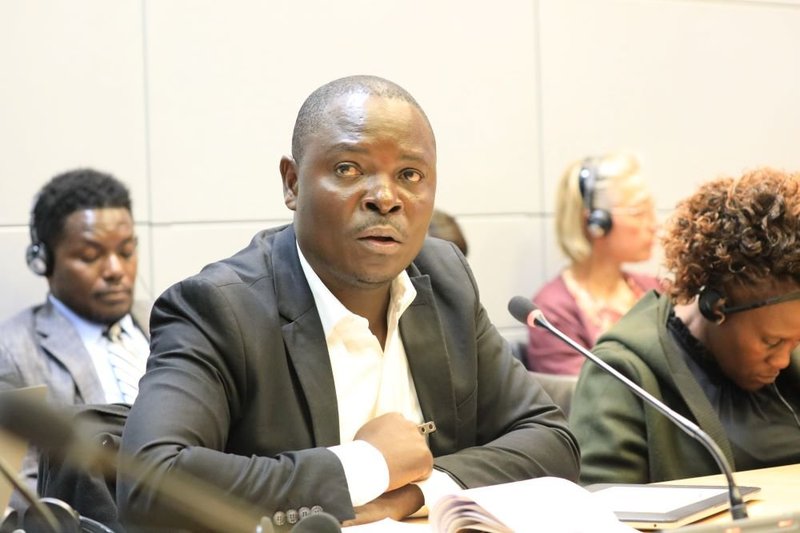
Emmanual Umpula Nkumba called for investment in different sectors to offer mining-affected communities more stability. Lai Yun / Global Witness
Cultural respect and preservation
Mining operations often take place in areas with rich cultural heritage such as Madagascar. For many Indigenous peoples and local communities, cultural preservation is of paramount importance.
Joelle Ravelomanantsoa of Transparency International Madagascar stressed that “value addition must include efforts to respect and protect cultural sites and practices. Local leaders should be consulted and incorporating traditional knowledge into project planning can help ensure that cultural landmarks are preserved.”
Continued access to land
For many communities, land is not just an economic resource but a vital part of their identity and livelihood. Ensuring continued access to land for farming, hunting and other traditional uses is crucial.
Mining activities should be carefully planned and executed to avoid displacing communities or depriving them of their essential land resources.
This means implementing rigorous environmental and social impact assessments and creating mechanisms for fair compensation and relocation if necessary.
Value addition must include efforts to respect and protect cultural sites and practices
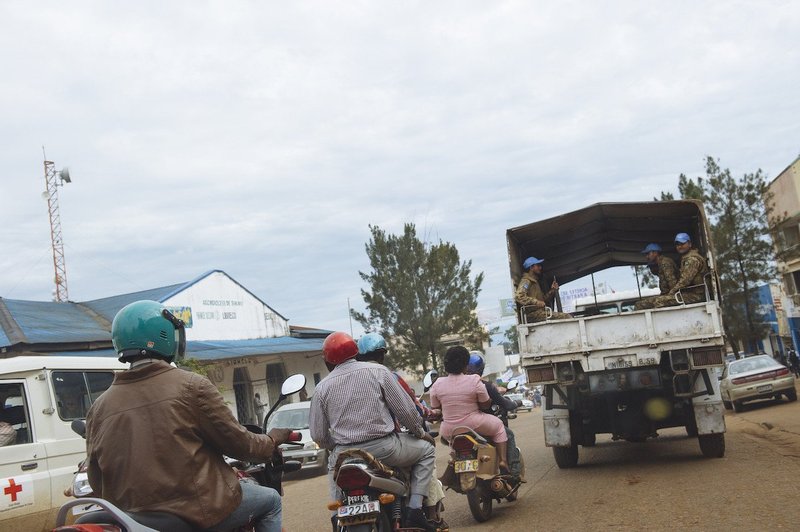
A more holistic view of value addition might prioritise investing in infrastructure, like roads or hospitals, over financial compensation. Phil Moore / Global Witness
Preservation of the local environment for future generations
Environmental preservation is a critical component of sustainable mining. Mining operations can have devastating effects on local ecosystems, which affect the livelihoods and health of nearby communities.
True value addition must involve strict environmental safeguards to minimise damage and ensure that the land can be used productively by future generations. This includes measures such as reforestation, water management and soil conservation.
Profit sharing and tech transfer
Profit sharing was at the forefront of industry and government officials’ minds at the forum, but it is also integral to communities to ensure that resource-rich countries benefit from mining transition minerals.
By retaining a greater share of the profits, these countries can reinvest in local economies, infrastructure and social programmes.
The transfer of technology and intellectual property, as pledged under the Paris UNFCCC agreement, is pivotal in this process. Tech transfer not only empowers local industries with advanced equipment and expertise but also stimulates innovation and capacity building.
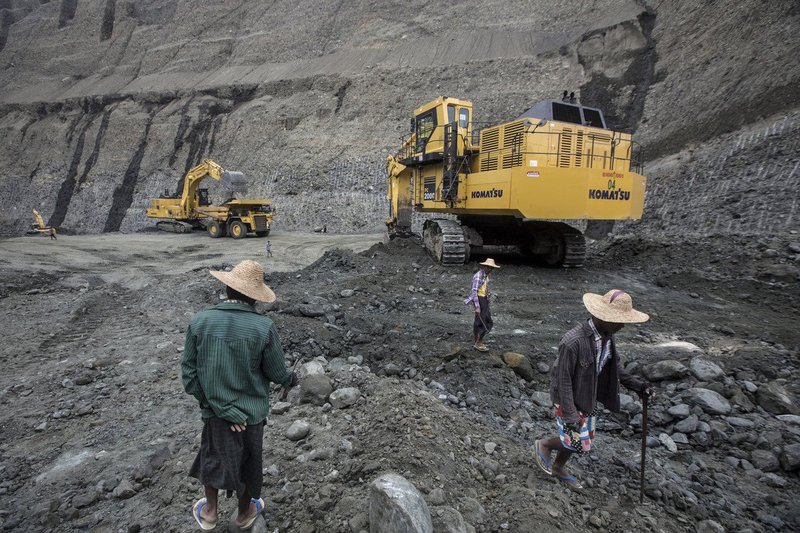
Technology transfer is key to building expertise and innovation in mining-affected communities, who can then choose how to reinvest in their locale. Minzayar / Global Witness
Rethinking value addition for mining-affected communities
At the OECD Forum, value addition was a term that was widely thrown about, but what it really means, and for whom, remained elusive.
In the context of responsible mineral supply chains, value addition must deliver tangible, sustainable benefits that enhance the wellbeing of mining-affected communities and the environment.
By embracing a broader and more inclusive definition of value addition, we can ensure that the extraction of transition minerals contributes positively to the development of local communities and upholds the principles of sustainability and social justice.
Without this comprehensive approach, mining can never be truly sustainable and the transition never truly just.
